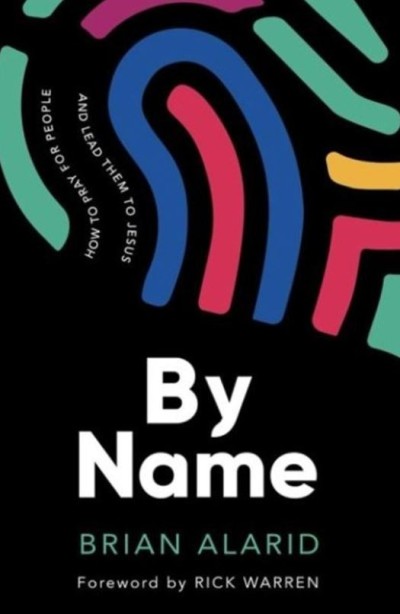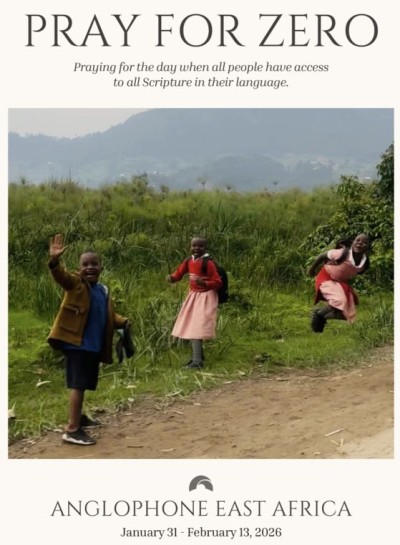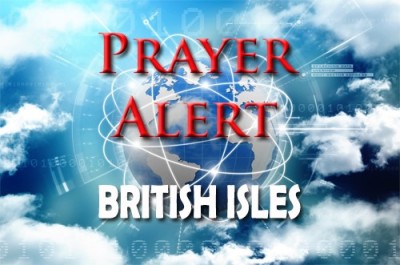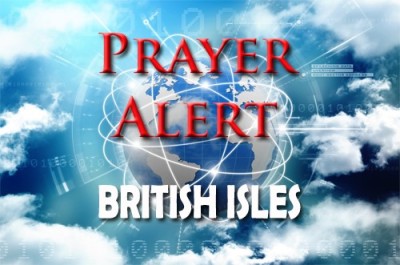Links to all IPC Projects:
https://linktr.ee/ipcprayer
IPC - 110 Cities - Global Days of Prayer 2026
Buddhist People - February 17
Muslim People - March 16
Pentecost - Worldwide Church - May 24
Jewish People - September 21
Hindu People - November 8
www.110cities.com | Daily Prayer Fuel Sign Up
Global Family 24-7 Prayer Room
www.globalfamily24-7prayer.org/
Prayer Covenant for Children Mobile App
theprayercovenant.org/mobileapp/
Light of the World Movie
www.lightoftheworld.com/
Interseed House of Prayer App
prod.global.interseed.io/link/groups?id=146
Shine! – All age prayers for the ‘Light of the World’ movie – 10th Feb / 10th March 2026
https://www.2bc.world/shine
7 Days of Prayer for Buddhist Peoples – 10-16 Feb 2026
www.110cities.com
Global Day of Prayer for Buddhist Peoples
17th Feb 2026
www.110cities.com
10 Days International Summit, Dubai - Feb 1–7 www.10days.net
24:14 '6/7 Gathering' Bali - Feb 8–12 2414now.net/pray/
Philippines Mission / Gathering - April 6–13
Envision Asia Conference, Batam - April 27–30
www.envision2026.id/
Oceania Prayer Connect – Vanuatu, May 19–20
Pentecost 26 – Sydney - June 13
https://events.humanitix.com/pentecost-26-australia-arise
The Arising 2026, Kingston, Jamaica - 24-25 July
www.spurropen.com/Arising2026JM
Global Day of Prayer for Korea - Aug 15
CLAMOR 2026 Summit, Curitiba, Brazil - Oct 8–11 www.clamor.global/
Billion Soul Harvest Conference Asia – Batam, Indonesia – 24-27 Nov 2026
By Name: How to Pray for People and Lead Them to Jesus
Billions of people don’t know Jesus, but God has given you and me the power to change that — and it all starts with prayer.
As you pray for people by name, Jesus gives you His love for them and begins to open their hearts to the Gospel.
In By Name, Brian Alarid will equip and inspire you to pray for people and lead them to Jesus using the five lifestyle habits that Jesus modeled: pray, listen, eat, serve, and share.
This book will help you love people like Jesus and impact your friends, family, neighbors, classmates, and co-workers for eternity.
Brian Alarid is the President and Founder of America Prays and World Prays and the Chairman of Pray For All.
He is the author of two books: When People Pray: What Happens When Ordinary People Pray to an Extraordinary God and By Name: How to pray for people and lead them to Jesus.
Brian has a Master’s Degree in Organizational Leadership from Regent University. He has been married to Mercy Alarid for twenty-seven years. They reside in Guatemala City with their three children.
Order ‘By Name’ on Amazon (new from $12.00)
Across the world, millions of people are still waiting to encounter God’s Word in a language they understand best - the language of home, heart, and daily life. The Seed Company prayer guide invites us to step into this global story with informed, faith-filled intercession.
In Anglophone East Africa, countries such as Uganda, Ethiopia, Kenya, and Tanzania have widespread use of English in education and ministry. Yet true heart transformation happens when Scripture is heard in local languages.
In this region alone, 57.2 million people still live without the full Bible, including communities with no Scripture at all. Amid drought, political instability, and disease, local believers and translation teams continue to serve faithfully, pressing on so families and communities can meet Jesus through His Word.
The guide also brings real-time prayer updates from around the world. Translation teams working in volatile and restricted environments face isolation, disrupted communications, and serious security risks. Others give thanks for breakthroughs - such as reliable solar power enabling ongoing work - or ask for prayer as they distribute new audio Scriptures discreetly.
Teams are also navigating the careful use of AI tools while ensuring accuracy and faithfulness in translation.
This prayer guide helps us pray with clarity, compassion, and confidence - uniting with God’s purposes so every people group can receive the Scriptures. As we read and pray, we partner with what God is already doing, believing for the day when all peoples can encounter His living Word.
As you read, you will also find specific daily prayer points from global updates to personal stories of faith that guide you in praying strategically with others.
 What a joy it is to witness God’s work and to join other believers in prayer. Thank you for standing in the gap until all people have access to Scripture.
What a joy it is to witness God’s work and to join other believers in prayer. Thank you for standing in the gap until all people have access to Scripture.
Read, Pray, Join Us on this Assignment!
Blessings,
The Pray For Zero Family
Join the Online Global Prayer Movement with the Interseed App!
Imagine thousands of believers from every nation, tribe, and tongue united in prayer—lifting their voices day and night before the throne of God. With the Interseed Online House of Prayer app, this vision is becoming a reality.
Developed to mobilise united, Scripture-led prayer for the nations, Interseed is more than just an app—it’s a growing global prayer family.
Whether you're on a lunch break, commuting, or awake in the night, you can log in and instantly join with other followers of Jesus to intercede for cities, nations, unreached people groups, and urgent needs.
At the heart of the app is the Prayer Wall—a live feed where believers post real-time prayer requests and praise reports. You can respond with a tap, adding your voice to prayers already rising like incense before the Lord (Revelation 5:8). Every “amen” is a vote of faith in God's power to move.
You’ll also find daily prayer points, themed prayer rooms, and video devotionals from prayer leaders worldwide. Whether you're passionate about revival, mission, justice, healing, or the next generation, there’s a space for you to engage and grow in your calling as an intercessor.
Dr. Jason Hubbard, Director of International Prayer Connect, says:
"We’re witnessing a new era of global, united prayer—Interseed is helping us connect and pray as one Body across time zones and cultures."
We invite you to download the app, create a free account, and take your place in this extraordinary, end-time movement of prayer.
✅ Post your own prayer requests
✅ Pray for others and mark them as prayed for
✅ Join virtual prayer rooms focused on strategic regions
✅ Receive real-time notifications for urgent global needs
✅ Be strengthened and encouraged through community prayer
Let’s fill the airwaves with prayer.
Let’s believe for awakening, revival, and the fulfilment of the Great Commission in our day.
Download the Interseed app today on iOS or Android
Visit https://interseed.io to learn more
Together, let’s build a canopy of prayer across the nations - until the earth is filled with the knowledge of the glory of the Lord!
At a recent meeting in Washington, Grace Jin Drexel shared the moving story of her father, Pastor Ezra Jin, imprisoned in China for his Christian faith. He was arrested in October alongside 27 other leaders from Zion Church, in what has been described as one of the largest crackdowns on independent churches since the Cultural Revolution. Grace explained that the arrests are part of China’s aggressive campaign to bring all religious life under Communist Party control. Churches have been forced to remove crosses, replace worship songs with revolutionary anthems, rewrite sermons to align with socialist ideology, and install surveillance cameras inside sanctuaries. Zion Church was targeted after refusing to install facial recognition cameras. Despite closures and intimidation, the church adapted, developing hybrid online and offline gatherings. During the pandemic, this model led to remarkable growth, expanding to over a hundred meeting spaces in forty cities and reaching thousands daily. Grace also spoke of the severe prison conditions facing detained leaders, her family’s separation, and harassment abroad. Yet she testified confidently that God remains faithful, prayers are not in vain, and repression cannot extinguish the Church.
What began as a simple family day at the beach off Western Australia became a terrifying ten-hour ordeal for Joanne Appelbee and her children. Strong winds carried them far beyond the safety of the shore, leaving them clinging to paddleboards as daylight faded. Realising help was needed, Joanne sent her 13-year-old son Austin back to raise the alarm. What followed was extraordinary. After a damaged kayak capsized, Austin was forced to swim four kilometres through rough seas, eventually abandoning his lifejacket and pressing on exhausted and afraid. For hours he prayed, sang Christian songs, and fixed his thoughts on his family, not knowing whether they were still alive. Reaching land at last, he made the call which triggered a rescue operation. Hours later, Joanne and her younger children were found alive, cold and frightened but safe. Though rescuers called his effort 'superhuman', Austin simply described it as doing what had to be done.
Labour MPs have warned that Keir Starmer’s leadership is under serious threat following intense backlash over the appointment of Peter Mandelson as ambassador to the USA. Fury erupted after Starmer admitted he was aware of Mandelson’s past friendship with convicted sex offender Jeffrey Epstein before approving the appointment. A Commons debate nearly ended in government defeat, narrowly avoided through a last-minute amendment forcing the future release of documents relating to Mandelson’s vetting and appointment. Several Labour MPs described a collapse of trust, with some openly questioning whether they could support Starmer in a confidence vote. The mood, described as 'dark' and 'terminal’, has unsettled even long-standing loyalists. MPs warned that once withheld documents are released - currently delayed by a Metropolitan Police investigation - a leadership challenge could follow. Though Starmer has pledged transparency and announced plans to strip Mandelson of honours, and ministers insist he acted in good faith, many MPs fear lasting damage to the government’s credibility and moral authority.
Six Palestine Action activists have been cleared of aggravated burglary following a break-in at a UK subsidiary of Israeli defence firm Elbit Systems near Bristol, but several still face the prospect of retrial on other serious charges. The raid took place in August 2024, when a group used a vehicle to breach the site’s perimeter and entered the building in protest against what they believe is the company’s involvement in supplying weapons to Israel - claims Elbit Systems strongly denies. While three defendants were acquitted of violent disorder, the jury was unable to reach verdicts on remaining charges for others, including grievous bodily harm against one defendant accused of injuring a police officer. Five activists have been released on bail, with one remanded in custody ahead of a further hearing in February. The trial heard conflicting accounts of events, with prosecutors alleging planned violence using sledgehammers, while the defence insisted the group acted defensively and without intent to harm. Outside the court, supporters gathered to celebrate the partial acquittals. The case has raised wider debate about protest, conscience, public order, and the limits of lawful dissent.







